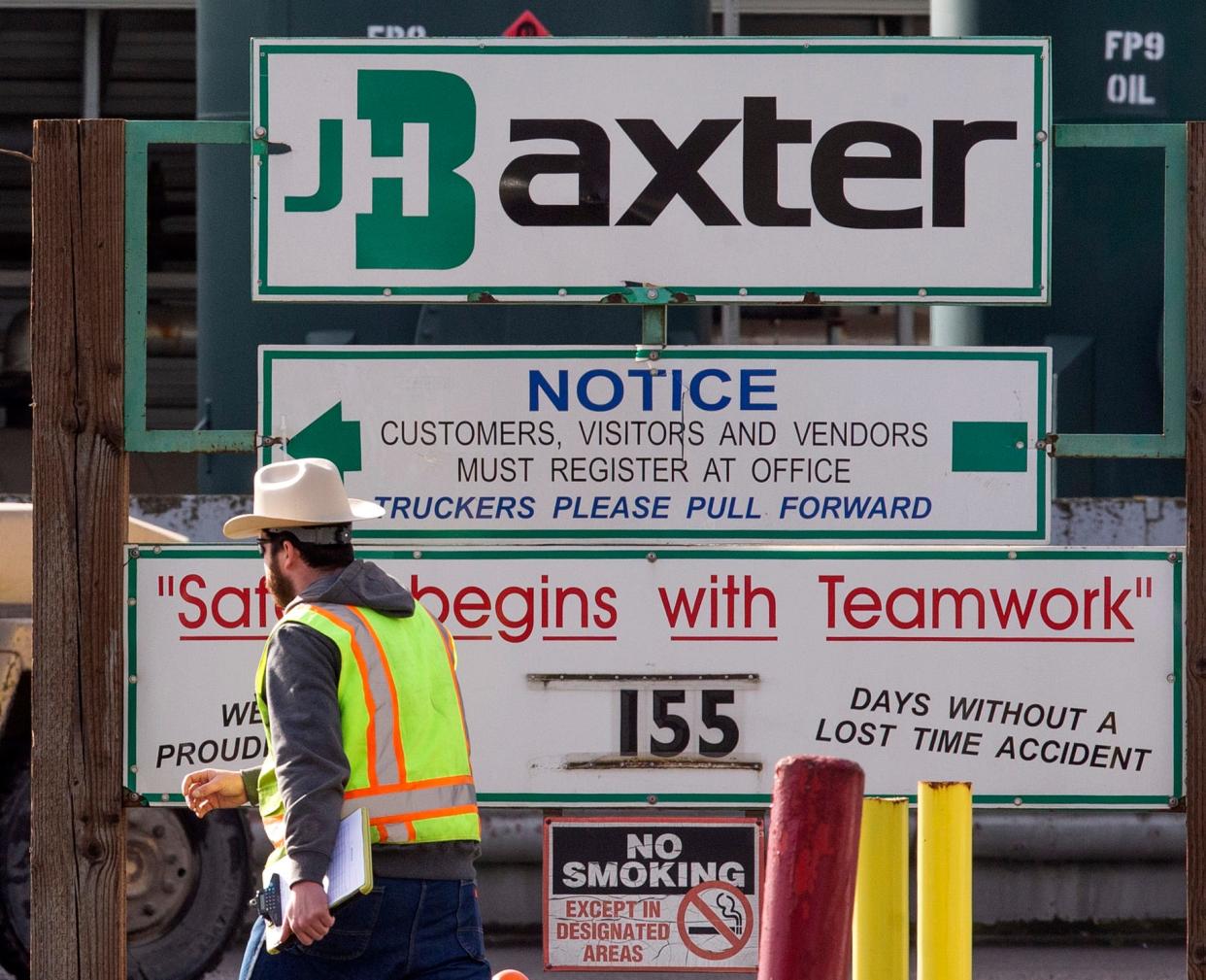Ask city for change to prevent more Baxter-like pollution issues now facing west Eugene

In recent months, J.H. Baxter, facing large civil penalties and an expensive environmental clean-up, announced that it would close its doors. For more than 50 years, J.H. Baxter operated a wood treatment facility in west Eugene where wood products are infused with potent oil-based pesticides and chemical treatments. However, faced with “market volatility” and “diminished returns,” the company concluded that “it simply doesn’t make financial sense to continue current operations at [its] Eugene facility.”
Apparently, J.H. Baxter’s choice of operational methods that never made moral or legal sense is no longer financially sensible.
Celebrations from environmental justice advocates and neighborhood residents are justified. However, the decades of pollution violations, unpaid civil penalties and unaddressed contamination caused by poorly regulated wastewater and toxic air emissions mean that closed doors may be as much an act of evasion as an act of surrender.
Soil sampling in the wake of yet another string of investigations and Department of Environmental Quality-issued civil penalties confirmed that its use of pesticides, heavy metals and pentachlorophenol under poor containment practices and weak environmental compliance has resulted in significant quantities of PCP leaching out from under the facility into surface and ground water and dioxin wafting out and settling in the surrounding neighborhood. Compliance accountability could not have been much lower for the wood treatment facility.
Dioxin, a toxic and persistent organic pollutant and a component of the biological-chemical weapon “Agent Orange” is now a fixture of west Eugene’s neighborhoods, a glaring harm to properties and substantial risk to residents. The Environmental Protection Agency says, “Dioxins are highly toxic and can cause cancer, reproductive and developmental problems, damage to the immune system and can interfere with hormones.” Children are most at risk.
Related news coverage:Oregon DEQ finds carcinogenic compounds in west Eugene yards around J.H. Baxter & Co. plant
Residents of west Eugene have raised the alarm on J.H. Baxter’s pollution for decades, citing noxious smells, illness, discomfort and respiratory issues among other adverse health effects, including incidence of rare childhood cancer. Unfortunately, the constant barrage of noxious fumes, combined with ineffectual responses from agencies to address the underlying cause of the pollution, nearly silenced community voices.
Finally, a final large civil penalty issued by DEQ and public outrage put sufficient pressure on J.H. Baxter to grind its operation to a halt. However, contamination remains, along with the health issues — including the emotional toll — experienced by members of the west Eugene community who have endured exposure to harmful pollutants for years while worrying about their children’s health and their property values.
Despite laws and environmental protections codified to protect public health and welfare, poison on the playground and pollution off the porch have repeatedly threatened residents of west Eugene. Today, nearly 40 Bethel residents wait to find out if their property is marked unsafe for children, unsafe to grow food and unfit for typical use.
Outcomes like those we see in west Eugene are the inevitable result of antiquated land use laws inconsistent with public health and welfare, plus bankruptcy laws that allow for financial default then saddle the public with clean-up costs — despite a company’s environmental recklessness and socially unjust business practices.
For a community, the current set of options is clearly insufficient — much too little, much too late. Our overarching concern is that when residents seek options for redress, the damage is already done (and long-lasting impacts have yet to follow). Regulatory agencies’ options are reactive as opposed to proactive and still place lasting burdens on communities. The regulatory framework is impermissibly weak in that it allows the harm to occur to neighborhoods like west Eugene time and time again.
We need a different framework. Beyond Toxics asks the city of Eugene to restructure land use planning criteria by strengthening the Land Use Compatibility Statements (a process involved with granting permits for development). We’ve also proposed that the city codify a Public Health Overlay Zone (a new ordinance layering additional protections related to public health and equity to existing zoning regulations). And third, we suggested that the city create a Risk Bond requirement (a bond the polluter must hold to insure against significant risks of environmental and public harm posed by a disaster).
The city council is holding work sessions on May 23 and 25. Share your voice and let city councilors know you support policies that protect against environmental harm, safeguard public health and ensure equity in community planning.
Peter Jensen is a law student and UO and law and policy extern with Beyond Toxics. Lisa Arkin is the executive director of Beyond Toxics.
This article originally appeared on Register-Guard: J.H. Baxter pollution raises issues for west Eugene-ask-for-change

